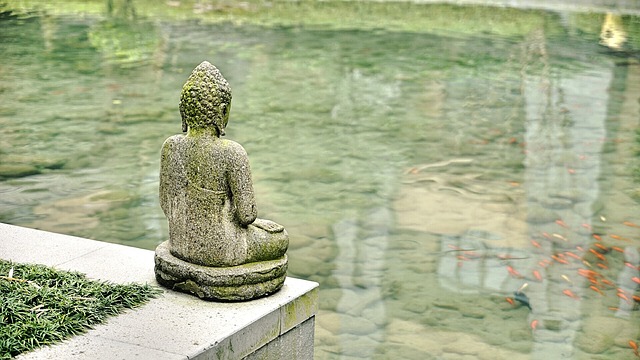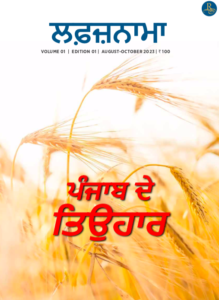The Setting Sun

Chandigarh Literary Society – Annual Short Story Writing Competition- 2023
3rd Prize Winner – Suneet Madan
She stood in the balcony looking at the rapidly plummeting sun. Things in her life had also been sinking at a similar rate. How she longed for someone or something to comfort her in these trying times. The shrill of the doorbell pierced through her reverie. She opened the door with great trepidation, making sure to adjust her headscarf before doing so.
“How many times must I remind you to put on your hijab first before opening the door?” her husband, Habib, had always insisted. His words echoed in Zainab’s mind each time she hurriedly approached the entrance, hoping to find her loved ones on the other side.
It had been four months since Habib’s hastily scribbled note had been delivered to her. It read, “Go with them immediately. I’ll join you later.”
With not much choice, Zainab was transported overnight from the quaint and mystical town of Achoora in the Gurez Valley to the bustling and noisy city of Jammu.
As she swung the door open, Kishori Lal was standing there in his customary attire of Choga and Puttu pajamas, with a Dard cap on his head. Despite his unusual stoop, the six-foot gentle giant towered over Zainab’s five-foot delicate frame.
How does he know where I’ve been put up? Has Habib come with him? … Zainab felt suffocated by the sudden surge of emotions as her eyes looked around for her husband.
“Salaam-walekum,” Kishori Lal spoke softly, with folded hands and a bowed head. “May I come in?” His grave expressions held a weight far heavier than she could bear.
With her hands atremble, throat drying up in anticipation of the information he brought, Zainab gestured him inside. Memories flooded back as she guided him to a seat.
He settled on the edge of the sofa, resting his elbows on the knees, with folded hands covering his lips.
Zainab, clutching the sides of her phiran to steady herself, stammered, “Tea?”
*
“Not the milk tea. Prepare zafran kehwa,” Habib instructed Zainab when Kishori last visited them. Taking him in a tight embrace, Habib slapped Kishori’s back lovingly. Even though he was socially well-connected, Habib rarely invited friends home. Kishori, however, was always welcomed with exuberance.
“He has come after so long! Regular tea wouldn’t do. Let me know when it is ready. I’ll come and pick it up.” Habib announced before the two vanished into his workshop on the upper floor of their humble but welcoming dwelling at Achoora.
Habib had introduced Kishori Lal as his childhood friend from Nagrota, who had grown up to become a leading exporter of Namdas – the sheep wool felt carpets, and Thuntoo – the Kashmiri Gucchi mushroom.
“Do not disturb us. We have a lot to catch up on.” These were Habib’s usual instructions every time Kishori came to visit them. The duo would spend hours holed up in the workshop, emerging infrequently for a washroom break or to pick food and beverages from the kitchen.
“Bhabhi, my clients are in awe of the aari technique Namdas you embroider so intricately. Your pastel colour palette and the floral patterns are unique from those in the market,” Kishori would habitually praise Zainab while handing over the gifts from his travels to far-off lands. She accepted them coyly.
“Don’t pamper her so much! Let it not become a habit. Otherwise, she will expect the same treatment from me should you stop coming!” Habib would admonish Kishori laughingly.
After each visit, Kishori Lal would be gone for many months. Habib would also leave for many weeks with the livestock; direction depended on the season. He would either head towards Patalwan or to the other side of Habba Khatoon, sometimes up to Chakwali.
*
“No, no tea. Thank you,” Kishori replied, glancing up momentarily, his deep voice tinged with sorrow.
Zainab’s eyes silently implored him to deliver the news hurriedly to alleviate the torment of the unknown. The fading light of the setting sun mirrored the sinking feeling in her heart.
A blanket of palpable hush settled over the room. Each elapsing second felt interminable.
Kishori Lal’s eyes remained glued to the floor. With a barely audible voice, he let some words escape the silence of his lips, “I-I regret to inform you that Habib bhai is no more. His body has been found near Dissan, riddled with bullets.”
Zainab’s hands clenched the fabric of her phiran around her throat. She was unable to register what had just been told. Her mouth hung open with silent shrieks as tears streamed down her cheeks. She continued to stare into the emptiness of Kishori’s face.
Though her life had been an interwoven tapestry of hope and tragedy, nothing could have prepared her for the agonizing pain that now engulfed her existence.
*
“The police have called off their joint operations with the army. It has been three weeks now. They combed every part of the Gurez valley and found no trace of a body along the river banks. It is feared that his body might have washed away across the border,” Kishori Lal had broken this tragic news five years ago.
Habib and Zainab’s teenage son, Iqbal, had gone for an outing to Kanzalwan with his schoolmates from the Senior Model School for Boys at Dawar. While playing at its banks, Iqbal accidentally slipped into the Kishenganga river. His friends raised the alarm, but powerful currents swept Iqbal away.
Although dazed by the unexpected update, Habib reluctantly accepted the news, but Zainab refused to believe that was Iqbal’s fate. Her mind raced with a whirlwind of emotions. She lived in anticipation and hope that if the body hadn’t been found, it couldn’t mean he was dead. She held to the belief that her son would return home one day.
She turned away all those who came to mourn Iqbal’s death, saying, “Iqbal’s abba and Kishori chacha were preparing him to join the Indian Army. He is a skilled swimmer. He will survive and return home, I know.”
*
Kishori Lal continued, “Habib bhai was shot at point-blank range by the insurgents.”
“Wh-what? Why would they target such a simple, God-fearing man? Why is my family being punished by Allah?” Zainab’s voice trembled with grief and turmoil.
“It is learned that they perceived Habib bhai to serve a secret purpose, which led to his elimination. And… I don’t know how to say this… a bakarwal confirmed that one of the heavily armed terrorists who infiltrated the region was…,” Kishori’s voice trailed off, a long pause hanging in the air, “…Iqbal.”
Zainab collapsed on the floor. Her faith had triumphed but at a tremendous cost. Habib was dead, and Iqbal was alive but had blurred into the world of shadows.
*
Colonel Kishore Lal had lost his most trusted informer, someone who had risked his life to gather crucial intelligence from the volatile region, only to meet his end at the hands of his blood.
“Try and get them alive,” were his orders to the paltan assigned with the task of neutralizing the terrorists.
In the village of Achoora, amidst the valleys and mountains that witnessed Zainab’s struggles, a new chapter was waiting to unfold.
(This story has won 3rd prize at the Chandigarh Literary Society’s Annual Short Story Competition 2023)















